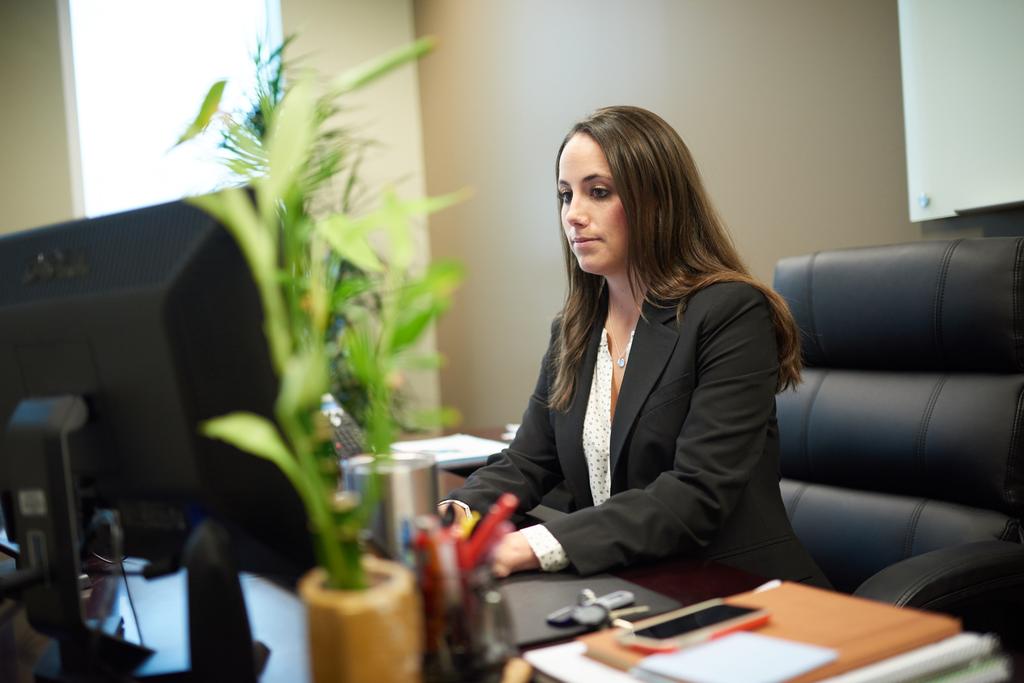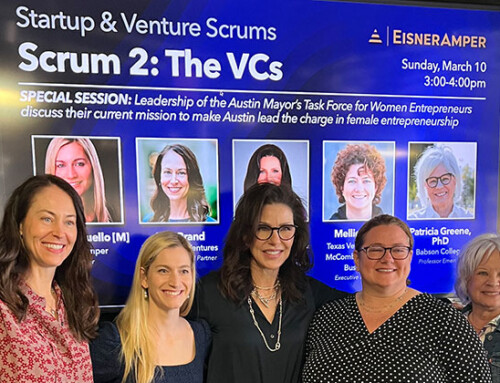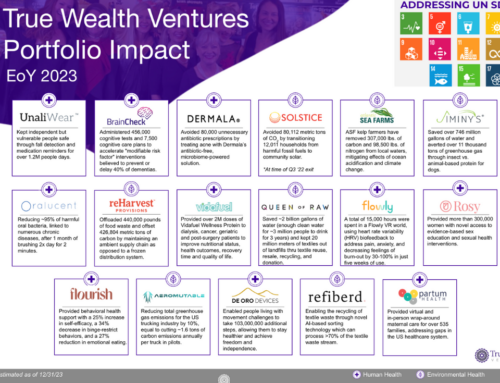This article was originally published in the Austin Business Journal.
In the wake of a high-profile gender-bias case involving a prestigious venture capital firm, the jury is still out on whether more women will venture into that industry. One Austin entrepreneur hopes to make a dent by starting her own firm to invest in woman-owned startups.
As a venture capitalist, Lauren Chauret can work in two areas that she’s most interested in: business and health care.
The Dallas native is partner and director of operations at PTV Healthcare Capital, an Austin VC firm investing in expansion- and late-stage companies. It’s a position that provides Chauret with what she considers “the perfect combination” of her business interests. So she was naturally disappointed — and a bit surprised — when during a recent career fair at the University of Texas only 20 percent of the applicants to her firm were female.
Those numbers shouldn’t surprise anyone.
The 23 Austin VC firms listed by the Chamber of Commerce include just five female partners. And some national studies show that the portion of female partners in venture capital has actually declined during the last 15 years while women have been making meaningful progress in most other sectors.
The shortfall of female power in the VC world certainly has its implications on that industry, but because VCs touch so many industries the issue indirectly affects the entire business landscape and the type of companies that succeed.
Research has found that VC firms with female partners invest more frequently in businesses with female executives. Here in Austin, one deep-pocketed female entrepreneur is taking it to the extreme by launching her own VC firm focused on woman-owned enterprises.
The gender gap was in the spotlight in March when a decision was rendered after a five-week gender bias case involving prestigious VC firm Kleiner Perkins Caulfield & Byers. The case in California got employees at local VC firms talking — or at least thinking — about the role of women in a largely male industry.
“Everyone would agree that this case has shed a lot of light on the lack of leadership positions for women in venture capital,” Chauret said. “With women, the perception with business in general is that you are entering a male-dominated world.”
In the court case, former Kleiner Perkins junior partner Ellen Pao lost a $16 million gender bias case in San Francisco Superior Court. The jury voted 10-2 in favor of Kleiner on all allegations that it discriminated against Pao, who is now acting CEO at San Francisco-based social media company Reddit. Pao claimed that the firm would not promote her based on her gender, and that it retaliated against her when she complained.
It’s unclear whether the Pao lawsuit will motivate firms to be more open to women. Locally, females in VC are tight-lipped on the subject.
Le Tran, an associate partner for Austin-based Corsa Ventures, declined to comment for this story saying that she would be probably regret being too candid. Susan Shesksy, a general partner at Austin-based Daylight Partners, said she was busy with other projects and didn’t have time to discuss females in VC.
Big opportunity
The venture capital industry is relatively young — only 70 years old — but it’s already gone through some periods of expansion and contraction. That could account for some of the lack of momentum women have gained in the business sector, but of course the fact that it’s a financial sector doesn’t bode well for members of the fairer sex.
In Austin, more VC firms, incubators and accelerators have risen during the last four years as the economy recovered from the recession. In addition to TechStars and DreamIt Ventures, nascent firms such as ATX Seed Ventures, LiveOak Venture Partners and StartupRunner Capital are now backing local startups.
The newcomers are male-dominated but there are signs of female leadership. The Central Texas Angel Network’s relatively new executive director, for instance, is Claire England and DreamIt Ventures’ Austin office was previously led by Kerry Rupp.
A lot of progress can still be made, and technology entrepreneur Sara Brand considers that a business opportunity. She plans to launch a firm later this year that will invest in women-led and diverse startups operating in the clean technology and health care sectors.
“There are no women in venture capital here (in Austin). This is even worse than the semiconductor industry,” Brand said. “I thought it’s a fantastic opportunity that’s being overlooked by the VC world because it is 100 percent male.”
I thought it’s a fantastic opportunity that’s being overlooked by the VC world because it is 100 percent male.
Brand, the co-founder and owner of (512) Brewing Co., was previously the vice president of strategy for California-based Advanced Micro Devices Inc. (NYSE: AMD) and an investor for San Francisco-based Fremont Ventures. She declined to disclose many details about her firm or the fund because regulations prohibit public solicitation.
She said the attention generated by the Kleiner Perkins lawsuit has both good and bad implications for women in venture capital.
“I worry a little bit about how negative the whole thing looks — it’s pretty scandalous,” Brand said. But “the numbers have had a big light shined on them. There are advantages to diversity.”
Economics drive decisions
The National Venture Capital Association doesn’t track the female percentage of members or genders. Clinton Bybee, president of the Texas Venture Capital Association, didn’t return several calls seeking information about Texas membership.
Molly Pieroni, managing director of JatoTech Ventures, said her gender was never an issue. But she co-founded the firm in 1999, so she was responsible for setting the firm’s culture.
Babson College, a nearly 100-year-old business college in suburban Boston, found that just 6 percent of all VC firm partners were women in 2013 compared with 10 percent in 1999. The industry is going backward in terms of diversity, and Babson professor Candida Brush is adamant that the trend is holding back an untold number of companies.
Homogeneous firms back homogeneous companies, limiting the type of startups that receive funding, said Brush, the lead author of an October 2014 report that found women VCs are 40 percent more likely to invest in women-led startups.
“This is an opportunity for VC firms to have more deal possibilities if they have more women in their firms,” she said.
Laura Kilcrease agreed.
The founder and managing director of Austin-based Triton Ventures LLC — a tech-focused VC firm — said diversity engenders better investing. And that should be the deciding factor in selecting partners.
“At the end of the day, economics will drive people’s decisions,” she said. “I’m surprised we haven’t solved this yet.”
Christopher Calnan covers technology, finance and clean energy for the Austin Business Journal. Subscribe to the Energy Inc. newsletter






